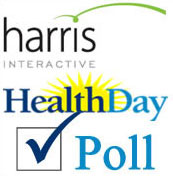- 8 Ways to Increase Dopamine Naturally
- 7 Best Breads for Maintaining Stable Blood Sugar
- Gelatin vs. Collagen: Which is Best for Skin, Nails, and Joints?
- The Long-Term Effects of Daily Turmeric Supplements on Liver Health
- Could Your Grocery Store Meat Be Causing Recurring UTIs?
- Are You Making This Expensive Thermostat Error This Winter?
- Recognizing the Signs of Hypothyroidism
- 10 Strategies to Overcome Insomnia
- Could Artificial Sweeteners Be Aging the Brain Faster?
- Techniques for Soothing Your Nervous System
Poll: Support Slipping for Affordable Care Act


The rocky rollout of the Affordable Care Act has done some damage to the public’s opinion of the new health care law, a Harris Interactive/HealthDay poll finds.
The percentage of people who support a repeal of “Obamacare” has risen, and now stands at 36 percent of all adults. That’s up from 27 percent in 2011.
The federal health insurance exchange website, HealthCare.gov, was launched in October, but technical problems made it close to impossible for many uninsured Americans to initially choose and enroll in a new health plan. After a series of fixes were made to the website in November, things have been running more smoothly, although the latest enrollment numbers are still far below government projections.
The increase in support for repeal of the law appears to come from people who up to now haven’t cared one way or the other about it, said Devon Herrick, a fellow at the National Center for Policy Analysis, a libertarian think tank.
“There’s less indecision. Those who really didn’t know or didn’t care or were indifferent or were uninformed are forming an opinion, and it isn’t good,” Herrick said.
The poll also found that people aren’t taking advantage of the law’s benefits, either because the rollout has prevented them from signing up or they aren’t aware of what’s available to them.
Fewer than half of the people who shopped for insurance through a marketplace were able to successfully buy coverage, the survey indicated.
Only 5 percent of the uninsured who live in states that are expanding Medicaid said they have signed up for the program. Two-thirds either believe they still aren’t eligible for Medicaid or don’t know enough about the program.
“These new findings make depressing reading for the government and supporters of the [Affordable Care Act],” said Humphrey Taylor, Harris Poll chairman. “Enrollment in both the expanding Medicaid program and in private insurance available through the exchanges is still painfully slow.”
However, there is a bright spot for the law’s supporters — more than two-thirds of the people who have bought coverage through a health insurance marketplace think they got an excellent or pretty good deal.
That’s the number that indicates why the Affordable Care Act eventually will succeed, said Ron Pollack, executive director of Families USA, a health care advocacy group.
“It is not unusual for a new program to have a hill to climb in terms of its acceptance,” Pollack said. “As more and more people get enrolled, they will tell their friends and they will tell their family members. As that happens, we will see more people decide that the Affordable Care Act is very valuable to them.”
About 48 percent of Americans support the Affordable Care Act, saying it either should be left as it stands or have some parts changed.
As the number of people calling for repeal has increased, the number of those undecided has decreased, from 27 percent in 2011 to 16 percent now.
“It’s not, ‘There are some problems, let’s fix it,'” Herrick said. “It’s, ‘There are some problems, let’s scrap it.’ “
The voices calling for repeal are still predominantly Republican, with 68 percent of people in the GOP supporting repeal.
However, 41 percent of independents also are calling for repeal, compared with 46 percent who support the Affordable Care Act. Roughly three-fourths of Democrats support the law.
About one-quarter of adults said either they or someone they know have tried to use a health insurance exchange. Of those, 46 percent reported that they successfully bought insurance through the exchange.
The success rate was higher — 54 percent — for those using the state exchanges rather than an exchange in which the federal government has a part. Only 43 percent of people using HealthCare.gov successfully bought insurance, and the federal-state partnership exchanges had a reported success rate of 38 percent.
“While the performance of the federal and state exchanges may be improving, it is surely disappointing that less than half of all the people who have tried to use them have succeeded in buying insurance,” Taylor said.
However, 68 percent of people who’ve been able to buy insurance came away pleased. About 22 percent said they got an excellent deal, and 45 percent felt they got a pretty good deal.
“Only 8 percent think they got a poor deal,” Taylor said.
Questions related to the Medicaid expansion revealed a wealth of ignorance.
Two-thirds of adults don’t know whether they live in a state that is expanding Medicaid. In states where it is happening, only a quarter of adults were aware of that fact.
Only 16 percent of the uninsured who live in states that are expanding their Medicaid programs said they either have signed up or plan to do so. Most of the uninsured in these states believe they are not eligible (33 percent), are not interested (21 percent) or are not sure (31 percent).
Pollack said these numbers point to the challenges now facing health-care reform advocates.
“For those of us who strongly believe the [Affordable Care Act] is a historic opportunity for many millions of people, our job now is to help people learn about what’s in the legislation and help them translate the legislation to figure out how it will help them in their lives,” he said.
The poll also found a lack of consensus regarding whether people want their states to expand Medicaid. About 39 percent support expansion, 29 percent oppose it and 32 percent aren’t sure.
“Even among those who would qualify for the program, there seems to be a fair amount of indifference,” Herrick said. “That does not bode well for the advocates of expansion.”
Harris Interactive conducted this poll from Dec. 13 to Dec. 17 among 2,129 adults, including 331 people who have no health insurance.
More information
The American Public Health Association has more about the Affordable Care Act.
For more details on the poll, visit Harris Interactive.
Source: HealthDay
Copyright © 2026 HealthDay. All rights reserved.










